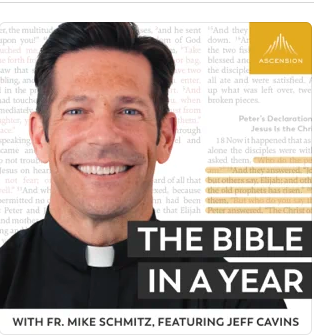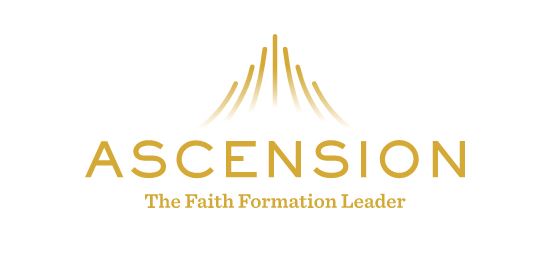
“Behold the Lamb of God”
Father Peter Fitzgibbons
January 11- 12, 2025
Gospel: Luke 3:15-16, 21-22
Do you remember the Greek I taught you last week about the Epiphany and what it means? In English, the Epiphany means manifestation, and today there is another one. Our good Lord is manifested and made visible by God the Father. God revealed to us the nature of the Trinity . . . the triune nature of God. The Spirit came upon us in the form of a Dove. By the way, the word “Spirit” is capitalized in Scripture. The Holy Spirit revealed the triune nature of God. We could have realized a lot of things on our own by backward reasoning, but the Trinity of God had to be revealed.
God also revealed things that are reflected in the “ologies” including Theology, Sacramentology, Soteriology, and Christology. God said, “This is My beloved Son” which is studied in Christology. Soteriology is the study of redemption and that of His suffering, death, and resurrection. Sacramentology, the study of Sacramental Life, began with our Lord’s Baptism and gave us the means for our walk to Paradise. Soteriology is the study of the Sacrificial Lamb. He came down to be sacrificed for our redemption. Remember in Scripture the command our Lord gave the Apostles? “Go, therefore, and make disciples of all nations, baptizing them in the name of the Father, and of the Son, and of the Holy Spirit” (Matthew 28:19). Contrary to our Protestant brethren and some enlightened Catholics, Baptism was not age restricted. The house of Cornelius was baptized, including many children. In those days, the child mortality rate was huge, and if you didn’t have a lot of children, there would be nobody to care for you in your old age. So, Baptism is the first Sacrament.
In other accounts of the Baptism of our Lord, what did Saint John say? In the past, we said this during Mass after the Minor Elevation. In Latin, which was the language of the Empire and is still the official language of the Church, Saint John said, “Ecce Agnus Dei” which means “Behold the Lamb of God.” And with that, the question that was first asked in Genesis is finally answered: Where is the Lamb of Sacrifice Who takes away our sins? Saint John answered that question 5,000 years after it was asked: “Ecce Agnus Dei” – “Behold the Lamb of God.” He picked Jesus out of a crowd. Behold the Lamb of God.
It was not the people’s lamb and not the Jew’s lamb, but the Lamb of God who came to be sacrificed. Lambs are gentle and docile, just as Jesus was. He was docile to God the Father by obeying His Word. Our Lord did the will of the Father. He came down and achieved our redemption by His death and resurrection. He took on a human nature to fulfill the debt that man could not repay because of the abomination of the first sin. It was such a great offense that only God could repair it. Our first parents walked with God and talked with God. They had full knowledge of Who God is, and they still disobeyed Him by eating the apple. “I’m going to do what I want and eat the apple.” That was such an offense that only God could correct it.
God sent the Sacrificial Lamb to redeem us. That is what we are doing here today. We see the Lamb of God in the Most Blessed Sacrament. As Saint John said, and as you can also say, “I see the Lamb of God.” Ecce agnus dei – Behold the Lamb of God. He’s right there in the Tabernacle. We have God. It is the fulfillment of His love for us. You see His Sacrifice in the Mass. It is not a re-sacrifice of Christ; He will not have to die again. It is a view of what is always before the Father in Heaven pleading on our behalf and will be until the end of time. “Father, forgive them, they know not what they do.” It is the Sacrificial Lamb Who is on the Altar. As Scripture has it, He is the scapegoat for our sins. The Lamb of God is among the lambs He created. What a wonderful thing.
How will you apply this message to your life? _________________________________________
You can read all of Father Fitzgibbons’ sermons by going to AnnunciationCatholicAlbemarle.com, clicking on “Blog” then “Categories” and then “Sermon Notes.” On a cell phone: click on “Blog” and then “Menu.” Scroll to the bottom and click on “Categories.” Sermon Notes are also available on the Church’s Facebook page at OLA.Catholic.Church. Click on “Groups” and then “Sermon Notes.”








